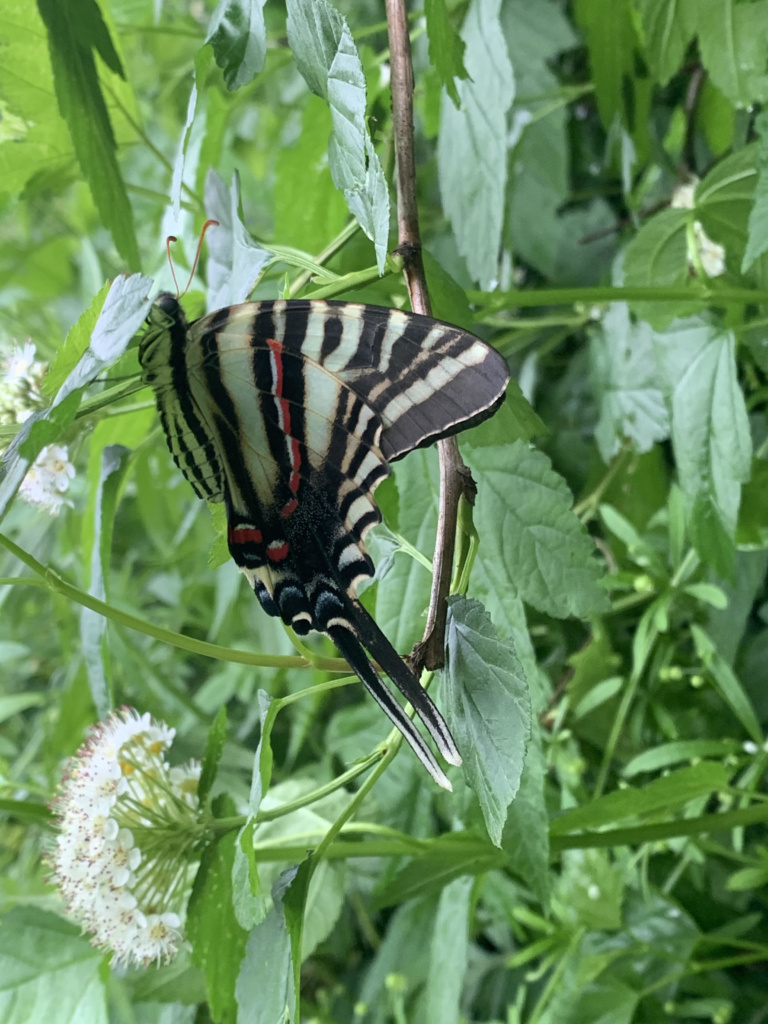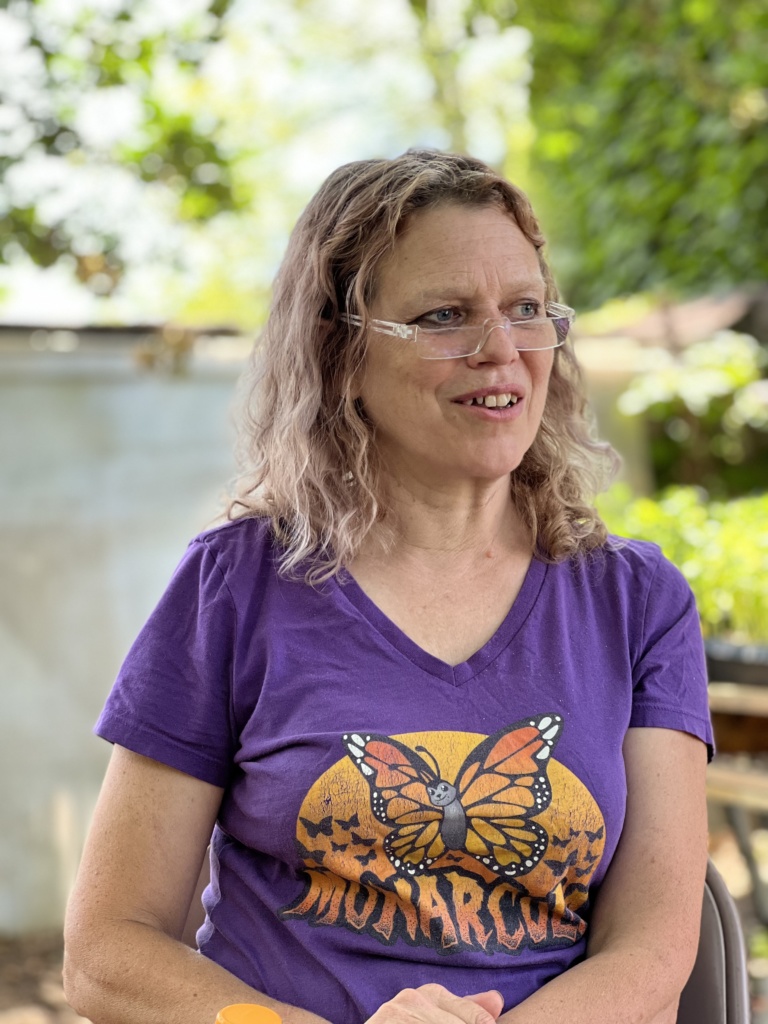During the late, breezy afternoon in June, Gabrielle Marsden took us around Garden Dreams and pointed out the pawpaw fruits on one of the trees and also the new cultivars where she had grafted pawpaw scions onto the root-suckers of a tree. Gabrielle has served as a field archaeologist, rock singer, bicycle messenger, landscaper, plant nursery potter, and butterfly ambassador. Over the years, she’s developed a close relationship with Garden Dreams Urban Farm and Plant nursery. If you’ve stopped by Garden Dreams during our seedling sale, you are most likely familiar with the lovely pollinator garden on the property that supports a diversity of butterflies, moths, and bees. Gabrielle grafted 3 cultivar varieties of pawpaws at Garden Dreams because cultivars are more appealing to our taste buds than many wild pawpaws and also to aid in the effort of bringing back zebra swallowtail’s habitats by bringing more awareness to pawpaws in general.
Gabrielle, or Gob as some may know her got interested in pawpaws when she noted in her iNaturalist app that the zebra swallowtail butterfly stops an hour south, and west, of Pittsburgh, and began wondering why that was. Her curiosity led her to realize that much like many other questions about the Pittsburgh region, the answer largely traced itself to the rapid growth of steel and other industries. The zebra swallowtail disappeared from Pittsburgh about a hundred years ago due to the destruction of riparian areas where the pawpaw tree used to be common.
When the industries receded, many plants common to riparian areas returned, but not the pawpaw. The pawpaw has evolved an anachronistic seed dispersal method, that used largely extinct megafauna, especially mastodons through their spore. The seeds require long cold wet stratification followed up with very specific growing conditions. Though Gob, mentioned, for the folks who want to take the laissez faire route, try putting seeds in your compost pile, and when they sprout, sometimes years later, plant them in your garden in a shady wetter area.
Gob highlighted the benefits of restoring the habitat as a snowball effect. Pawpaw’s main habitat is next to waterways both big and small. She said, if we restore pawpaws to these areas, other plants and animals are likely to return and with their presence, the waters that flow through will be naturally filtered and everyone downstream of us from here down to New Orleans will have cleaner drinking water. The waterways in the Pittsburgh area have been greatly abused and are extremely important to 10% of the population of the United States if you do the math that’s more than 25 million people! In addition to this, the zebra swallowtail can finally return to the Pittsburgh region!


Wondering where you fit into all of this? You can help preserve and restore the pawpaws and bring back the zebra swallowtail. At the moment, Gabrielle is doing this work as an unpaid, singular person. A lot needs to happen to bring back the zebra swallowtail. For the restoration process, Gabrielle has been building a database and maps that show where pawpaws are still surviving and is working on taking further action to make them thrive. She said, “I would love to get some sort of grant that supports me. I have hiked many miles and kayaked along a fraction of the waterways that need pawpaws to restore the zebra swallowtail. I could use help in covering some of that ground.” She also suggesting that any entity who manages land on waterways can help bring back the zebra swallowtail by restoring pawpaws to these areas where they used to be abundant.
Finally we asked, what is something you hope folks take away from learning about your efforts to restore the pawpaws? Gob listed out the following five items:
- Think about what is happening in your local community no matter where you are. The Zebra Swallowtail is a local species and requires local interest.
- You can do something tangible to improve the world just by paying attention.
- Many times, things that seem small are really very, very big! Like the breeze from one butterfly flapping its wings.
- If you want to get something done, it can happen faster if you get help.
- Learn how to explain your ideas and learn from as many people who know about your topic as possible!
Join us for the Pawpaw Tasting parties and meet Gabrielle. Come to Garden Dreams Tuesdays from 4:30 pm to 6:30pm:
- Tuesday, September 13
- Tuesday, September 20
- Tuesday, September 27
- Tuesday, October 4
